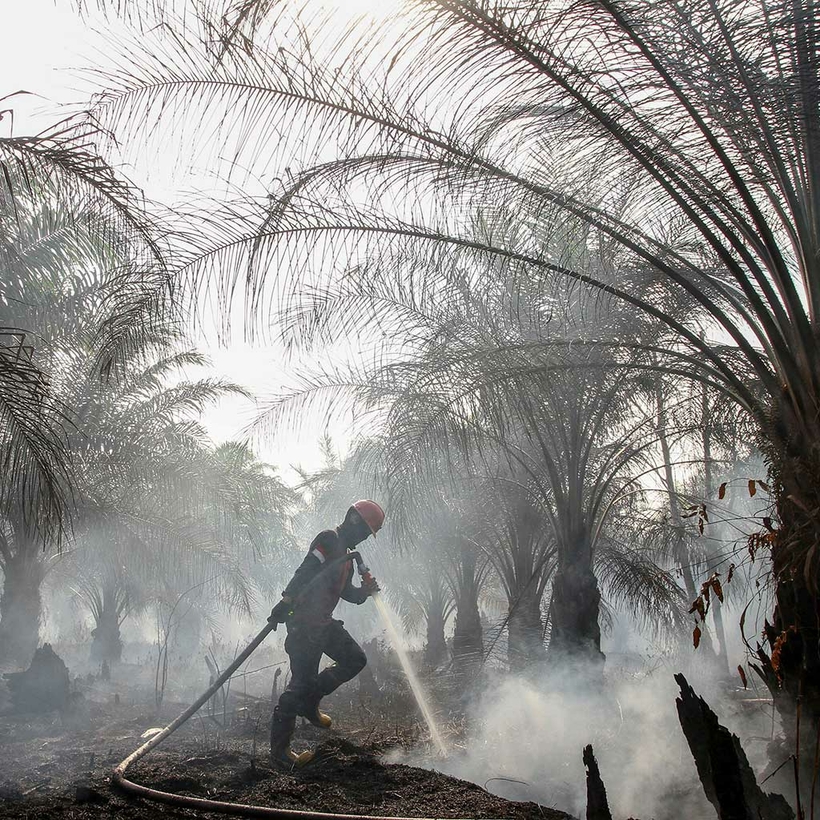An Indonesian scientist whose work proves that companies are illegally burning forest to grow the palm oil used in foods and cosmetics has received a British award in recognition of the huge risks he has taken.
Bambang Hero Saharjo, from Bogor Agricultural University, has been sued, threatened and intimidated because of his work identifying the companies behind the fires that ravage what remains of the Indonesian wilderness.

